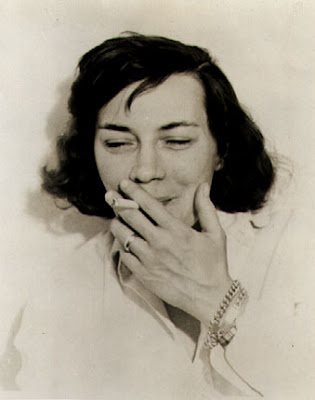"The Book of Illusions" ****1/2
By Paul Auster
 Paul Auster's novels, "Oracle Night" and "The Book of Illusions" illustrate how the writer's experiences stretch into the imagination and onto the page or screen. The fictional work becomes a kind of ectoplasmic extension of the writer, a creature not exactly real nor severed from its creator, but one that can effect independent and sometimes profound change in the writer and the people and events of his life.
Paul Auster's novels, "Oracle Night" and "The Book of Illusions" illustrate how the writer's experiences stretch into the imagination and onto the page or screen. The fictional work becomes a kind of ectoplasmic extension of the writer, a creature not exactly real nor severed from its creator, but one that can effect independent and sometimes profound change in the writer and the people and events of his life.Or, to put it less metaphysically, both the act of writing and the created work change the life of the writer and those around him. In Auster's novels, writing is change-making, risky--even dangerous. In "Oracle Night," author Sid Orr seems to disappear quite literally into a story he is writing. In "The Book of Illusions," Hector Mann's life abruptly ends as a direct result of inviting his biographer, David Zimmer, to view some of his hitherto unseen movies.
What makes these two books such engaging page-turners is the fact that the bigger themes--writers and their writing--are written as classic crime noir novels. Take this bit, for instance, where David Zimmer is summoned to Hector Mann's ranch by a mysterious woman, Alma Grund. Zimmer is not inclined to take Grund up on the invitation. And after making a melodramatic and emotional plea (think Brigid O'Shaugnessy in "The Maltese Falcon") to Zimmer to accompany her, Grund changes tactics. Zimmer narrates:
I can't explain where this knowledge came from, but whatever premonition or extrasensory alertness took hold of me when I saw that look in her eyes, I knew that she was carrying a gun in her purse, and I knew that within the next three or four seconds she was going to stick her right hand into the purse and pull out the gun.Well! How can you resist 300 pages of thrills like that--steamy encounters in hidden brothels, private sex shows, hopped up junkies who seem to know more than you do about your wife, a guy who gets trapped in a secret library while cataloguing a collection of the world's phone books for a crazy retired cabbie in Kansas City, two midgets pushing wheelbarrows of film toward an acrid conflagration of burning celluloid. Sure, it's ludicrous on one hand, but on the other, just describing the various plotlines in that last sentence made me go all woozy and craving another hit. Plus the characters all have cool noir names like Sid and Hector and Sylvia and Frieda.
It was one of hte most sublimely exhilarating moments of my life. I was half a step in front of the real, an inch or two beyond the confines of my own body, and when the thing happened just as I thought it would, I felt as if my skin had become transparent. ...
The gun was in her hand. It was a small silver-plated revolver with a pearl handle, no more than half the size of the cap guns I had played with as a boy. As she turned in my direction and lifted her arm, I could see that the hand at the end of her arm was shaking.
Haven't encountered such heady reading since Patricia Highsmith's Ripley books (and there she is, above left, looking like one of Auster's enigmatic heroines and clearly entertaining some mordant joke). Click the pic to read Michael Dirda's fine article about her literary life.
No comments:
Post a Comment